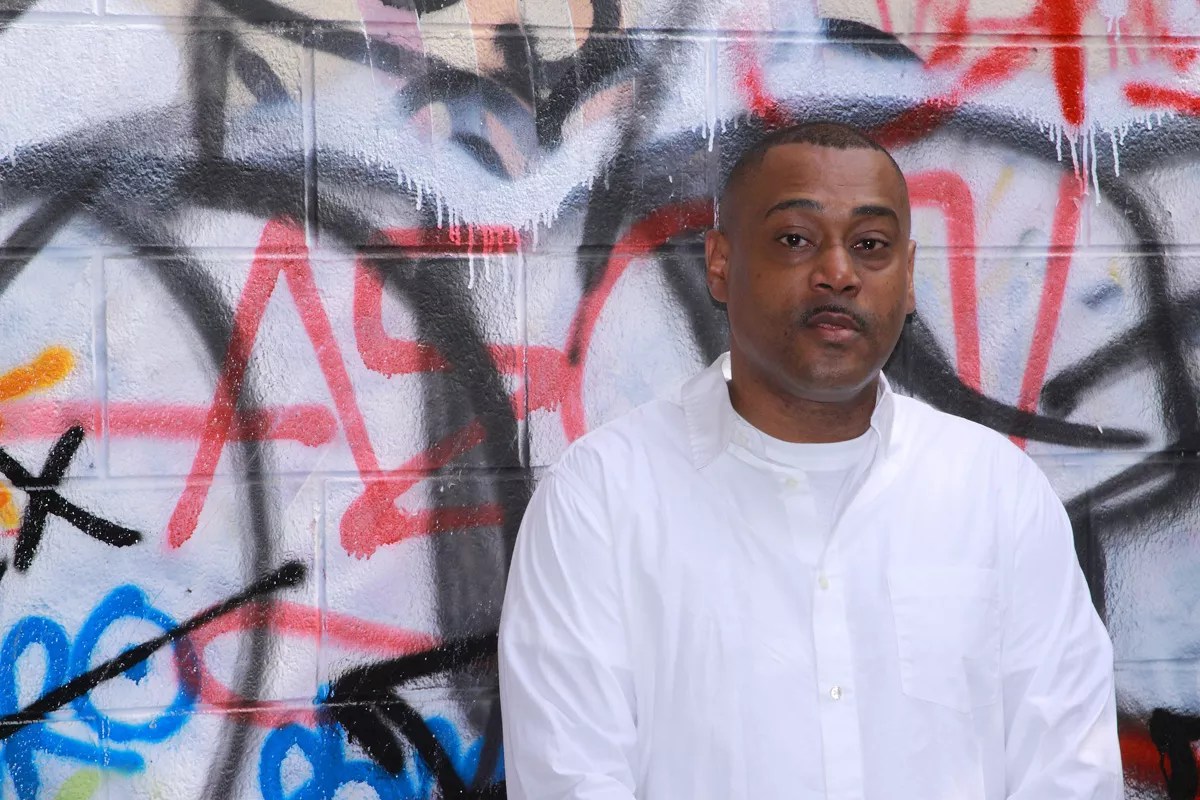
Michael Kuentz

Audio By Carbonatix
Electronic-dance collective Deep Club will celebrate its four-year anniversary with house and techno music legend Mike Huckaby, who has been involved in all aspects of music – from working at a record store to making, producing and remixing tracks and running his own labels, Deep Transportation and S Y N T H. These days, when he’s not busy being one of the most in-demand remixers in the industry, he teaches classes on electronic-music production and technology, sharing his expertise with people of all ages and backgrounds.
We caught up with Huckaby via e-mail, ahead of his March 25 performance, to talk about how working in a record store influenced his career and how techno and house are still relevant.
Westword: You’ve been involved in pretty much every aspect of making music down to working in a record store. How would you say that helped you as a producer?
Mike Huckaby: Working in a record store was a great asset. That was the place that showed you what worked, what didn’t and what the public was into. I formulated my sound working in a record shop. You were able to collect a wide range of samples from the used bins. I can’t say it enough, how important working in a record store is to a producer.
These days, in addition to your music gigs, you are very involved in education on synthesis, sound design and production. What do you try to convey to your students across all of those spheres of knowledge in your classes, outside of the knowledge specific to those particular subjects?
I try to show just how easy it is to make music through organization. You’d have to attend a workshop I’m doing to see that, though. But the artist dilemma goes as such: You wake up, and the track you’re working on can’t be finished. Whole week goes like that, and suddenly, weeks to a month and beyond, and it’s the same thing. In my workshops I break a person free from that dilemma. It all comes down to your personal workflow and how well you are organized in your workflow.
How did you get involved with performing at the Love Parade in 1997? What were your impressions of Love Parade and its significance in terms of electronic music and its culture?
Wow. A question about Love Parade? Well the whole Detroit/Berlin connection has been in effect for a while, I’d say. I was doing a lot of deejaying in Stuttgart at the M1 club. Way before Berlin was considered cool and a place that people would flock to later on. The crew from the M1 club were organizing a party during Love Parade. From there the possibility to play at Tresor emerged. It’s all been a bit of connecting the dots the whole time. At times I miss Love Parade. It was just another example of how electronic music is validated in Europe by all social institutions. We lost that very early on here in the United States.
From that early era of Detroit techno and house, what do you feel remains an essential component of that music today, and why?
Detroit electronic music has always been the sound of struggle and chaos in a producer’s life. You cannot hide what’s going on in your life while you are in front of the machines in your studio. It’s just that simple. So, Detroit electronic music is just the soundtrack of your life, really.
It may be difficult to say, as it’s still a strong wave of the music going on, but as someone who has seen the rise and evolution of various forms of electronic music and been involved in creating it yourself, how do you account for the popularity of stuff like deep house and dub techno in the current era?
Deep house or house music in general has proven to not be a fad. It’s a mainstay. House music is a strong foundation that [increases] as time goes on. There will have to be a fundamental shift in the paradigm of thinking to create something as the next big thing after house music. I think people like dub techno because it does something to your brain and central nervous system when you hear it. The clangorous metallic sound you hear in a basic channel track seems to be something people connect to. It’s one of those things that if you know, you just know.
What do you think the legacy of Detroit techno has been, and why has it become relevant again in the underground after electronic music went mainstream in the 2000s?
It’s due to the fact that Detroit electronic producers don’t sell out. You are listening to a reflection of a person’s life when you are listening to Detroit electronic music. This music is not done primarily for commercial success and fame.
What sort of DJ set might we expect from you in Denver, and how do you prepare yourself for the kind of all-night sets that you do?
You can expect to hear everything from jazz to techno, from disco to deep house and back again. You will be hearing an uncompromised set of me.
Mike Huckaby at Deep Club’s Four Year Anniversary, Saturday, March 25, at 11 p.m. The location will be announced the day of the event. For more information and to purchase tickets, $25, please visit deepclub.us.